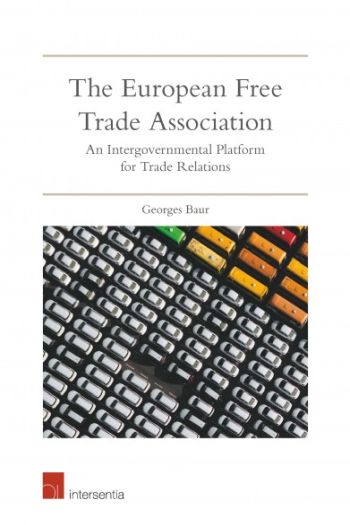We are now closed for the Christmas and New Year period, returning on Monday 5th January 2026. Orders placed during this time will be processed upon our return on 5th January.

This book is an introduction into the European Free Trade Association (EFTA) as an international organization and, inter alia, as a platform for its member states’ relations with the EU and for jointly negotiated Free Trade Agreements. EFTA – originally set up by the UK - is an example of how countries that do not want to be members of the EU can still have close links with it.
EFTA is a loose intragovernmental association of some economically highly specialised, small and wealthy Western European small states which have, until now, decided not to join the European Union (EU). Essentially it is the platform for Iceland, Liechtenstein, Norway and Switzerland to coordinate their free trade policies as far as possible. Iceland, Liechtenstein and Norway also use EFTA, in particular its Secretariat, to manage their membership of the European Economic Area (EEA) and to adopt relevant legislation into the Agreement. Particularly in the context of Brexit it should also be noted that there are elements of the relations between the four EFTA States and the EU which are not necessarily based on either the EEA Agreement or the EU-Swiss Agreements. Until recently, EFTA was considered an outdated model. However, since Brexit interest in EFTA has increased. Where the subject was covered in the press, but also in relevant statements by politicians, there was hardly any distinction made between ‘EFTA’ and the ‘EEA’. This book is not about Brexit, rather it will correct certain misconceptions about EFTA and provide a clear overview on what EFTA is: a platform for the economic relations between its member states; a platform for its member states’ free trade policy and a platform for its member states’ relations with the EU. There will be food for thought on the UK’s future outside the EU.